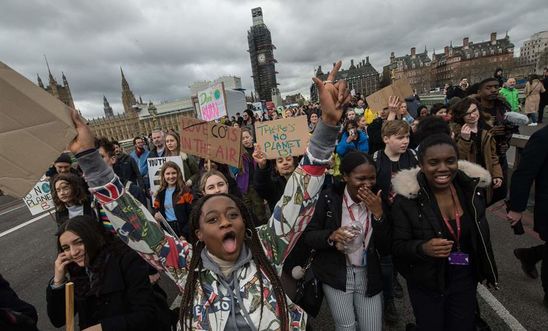
The Time is Now

This is a guest blog by our Scotland Speaker Coordinator, Alex Mackenzie
Recently, more than any other time, I have felt deflated by the reporting on the climate crisis. The UN warned of a “bleak”future as the carbon emissions gap grows, and we may already have crossed a series of climate tipping points, according to a stark warning from scientists from the University of Exeter. The Guardian proclaimed: Countries from Siberia to Australia are burning: the age of fire is the bleakest warning yet about climate change.
And yet, on a crisp cold winter morning at the end of November, I made my way to a Conference in Edinburgh - Community Action on the Climate Emergency. The space was packed with representatives from all corners of Scotland, all energised to work together to combat climate change. The opening speech, from youth climate striker Esther Silverton set the tone. Esther, much like Greta Thunberg and the other youth activists, doesn’t mince her words and gave an impassioned plea to give her generation hope for a better future. We have two options, Esther said, a dry parched world with untold human suffering and tsunami like mass migration or a more humane and equitable world between Global North and South where we all benefit from living without fossil fuels.
A recent YouGov survey found 56% of the UK public total decarbonisation of the UK by 2030. The UK is set to be net zero by 2050 and Scotland by 2045. Tom Ballantine, Chair of Stop Climate Chaos Scotland, highlighted that if these efforts are replicated across the world there is a 50% chance of limiting the temperature rise to 1.5 degrees celsius. Let’s be truthful about the climate emergency, 20 of the wealthiest countries account for 78% of carbon emissions and we have a decade to bring about change. Tom believes relationships are central to everything, in bringing about the behavioural change needed, and communities are an important agent in getting this done. Scotland has a huge opportunity next year to not only showcase our best efforts in combating climate change but to lead on these efforts as the world will be watching during the 2020 UN Climate Summit in Glasgow.
Nicholas Gubbins, CEO for Community Energy Scotland (CES) outlined the role of the third sector and the government response. CES is an important driver in strengthening and empowering local communities by helping them to own, control and benefit from their local renewable energy resources, control and reduce their energy costs, regenerate their communities and play their part in the low carbon transition. Individuals however are not adapting to the climate crisis; ownership of cars is up, as is the use of aviation and the use of the public transport is down. We need a locally defined response says Gubbins and for local places to be areas where you want to stay, live and work.
Andy Wightman MSP advocates for “system thinking” by developing a transport, heating, energy and land use system that works for all. To identify links and create better systems rather than isolated individual projects; that power should be devolved to community level rather than residing in centralised pockets. Eva Schonveld, Scottish Communities Climate Action Network, called for organisations to sign up to a Communities Call for Action.
Ideas were shared, actions forged, a vision, a plan and a realisation that the climate crisis demands us all to act and act now.
After a week of cold hard truths about the climate crisis, the conference offered a beacon of hope in troubled times and I remain optimistic because to coin a phrase from Mary Robinson and Archbishop Tutu I remain a “prisoner to hope”. To not see the glass as half full, but to always see something to fight for and there is a lot worth fighting for – but the time to fight is now.
Our blogs are written by Amnesty International staff, volunteers and other interested individuals, to encourage debate around human rights issues. They do not necessarily represent the views of Amnesty International.
0 comments